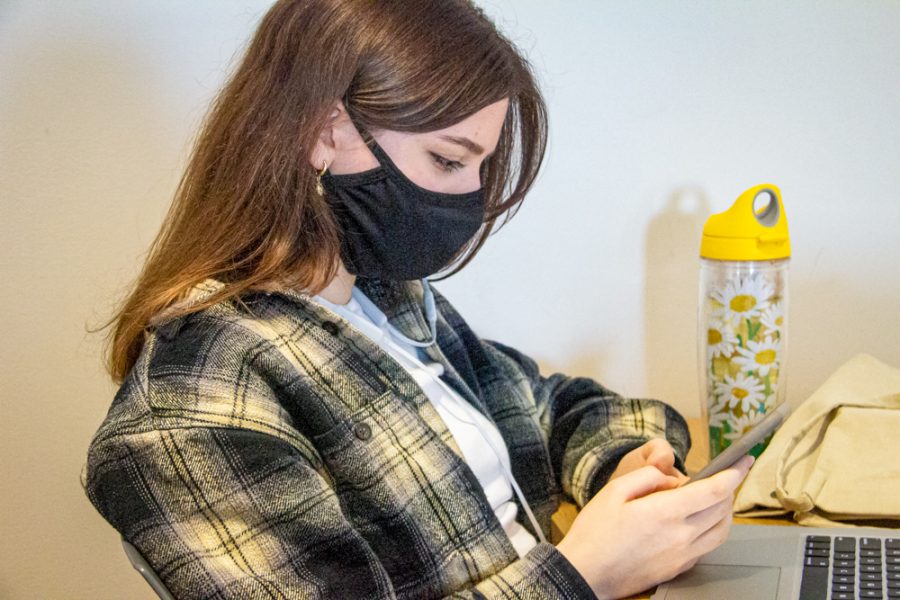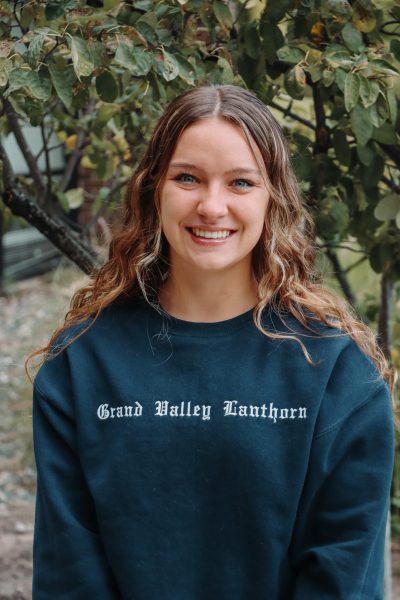Virus Action Team shortens quarantine period, changes booster policy
Feb 14, 2022
Grand Valley State University’s Virus Action Team (VAT) recently issued many announcements regarding changing COVID-19 policies.
Two major developments include requiring students to receive the COVID-19 booster shot in order to stay out of quarantine and the shortened quarantine periods from 10 to five days in some cases.
The announcement came after a large decrease in reported COVID-19 cases from the beginning of the winter 2022 semester where there were almost 1,000 cases on-campus at some points in time.
The shifting policies, however, follow the changing guidelines issued by the CDC concerning what it means to be “up-to-date” with the COVID-19 vaccines.
Those who’re not considered up-to-date include people who’re not yet vaccinated, are partially vaccinated or are eligible for a booster shot but haven’t received it.
GVSU had previously stated at the beginning of January that the university recommended but didn’t require that students receive the booster shot.
However, the university officially announced through email on Feb. 3 that the booster was necessary to avoid quarantine periods. The email also stated that this policy would apply beginning on Feb. 11, just over a week later.
“Students should have a bit more of a heads up,” said GVSU junior Emily Kwekel. “Weeks’ notice to get healthcare access in the middle of the pandemic feels moderately unethical, as we have school, work and other external obligations to attend to, and it takes time to plan and make appointments.”
However, there’s one exception to the booster requirement to avoid quarantine.
“If someone had a positive (COVID-19) test in the past 90 days, they will not have to quarantine if they are exposed,” said vice-president of the VAT Greg Sanial. “However, the test either needed to be reported at the time of illness or they need to upload proof of a positive test via the GVSU Self-Assessment.”
Additionally, quarantine periods are taking a new form.
For those who test positive for COVID-19, the 10-day isolation may instead become five days if the individual meets certain criteria.
An individual must meet at least one of the criteria, which include having mild illness or no symptoms, an improvement of symptoms while being fever-free within a 24-hour period or a negative COVID test on day six from either GVSU symptomatic test site or a certified lab.
Furthermore, individuals are required to wear a mask when around others up until day 10.
For those who have been exposed to COVID-19, there are fewer direct guidelines for the duration of the quarantine.
After an individual’s last exposure to a COVID-19 positive person, the standard quarantine period takes effect for 10 days but can be subject to change.
According to the Lakers Together student information on quarantine and isolation page, quarantine may be shortened if certain criteria are met. The COVID Assessment Team will determine your period and discuss the shortened option with you.
Other COVID-19 policies have recently developed, including the use of at-home tests, which have recently gained more use and popularity.
The VAT outlined in a recent email that at-home tests are “acceptable” for vaccinated people to report a positive test.
However, at-home tests can’t be used to replace required weekly testing for those who’re unvaccinated.
Another change has been with contact tracing policies.
This has changed contact tracing from any exposure to COVID-19 within the classroom to primarily contacting individuals who have been in close, unmasked contact such as housing situations.
What steps GVSU will take in regard to COVID-19 policies continues to develop alongside the shifts of the virus itself.
This has led to some students feeling there are certain changes that can be mandated in the meantime.
“I think GVSU should mandate the booster shot,” Kwekel said, “There are still many students that refuse to wear their masks above their nose, refuse to get tested, still go to class with symptoms, break quarantine rules, etc. If people aren’t going to follow these guidelines, I think it would be reassuring for everyone knowing that everyone was at least fully vaccinated.”























